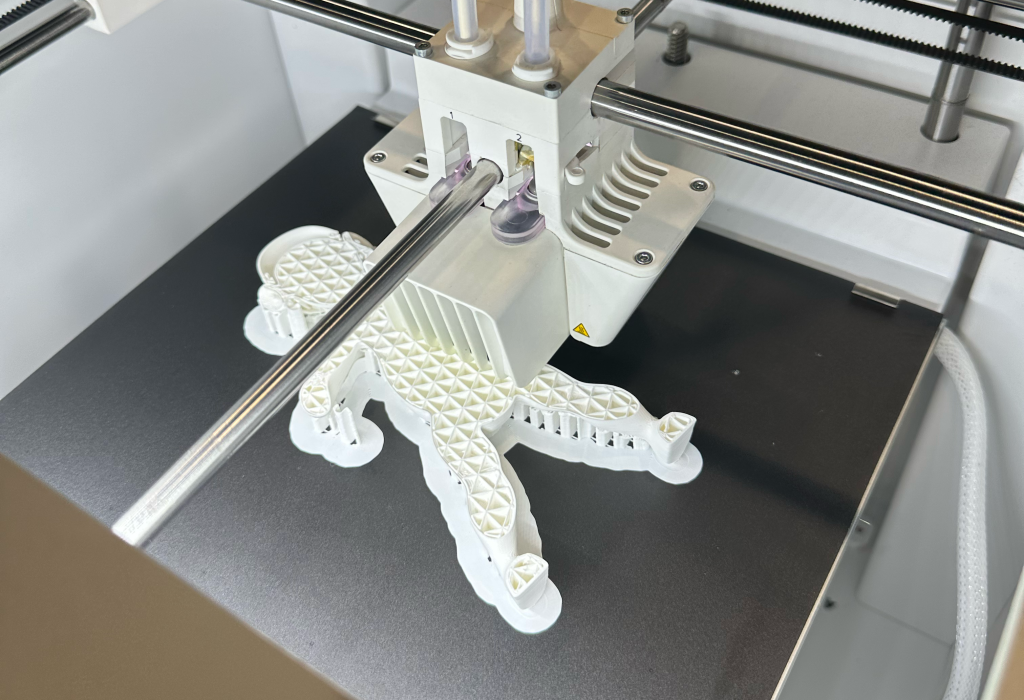
This year, the application procedure for the DigiDemo and CreaDemo grants was held in two parts. The concept grants were awarded in spring. The application period for the demo and pilot grants was 15 May–11 September 2023, and a total of 91 applications were received.
DigiDemo grants for games and new animation series
DigiDemo is a product development grant for the development of new audiovisual or other cultural content and its narrative forms. The grant, worth €340,000 in total, was granted to 17 different demos and pilots. A wide range of applications were received, from all across Finland and from different fields, such as games, films and augmented reality.
“One noteworthy thing was the applications related to games were mostly focused on PC games instead of mobile games,” says Marcus Korhonen, a member of the team of experts in charge of the grant decisions and the director of Aalto Studios.
The game demos that received support featured, for example, rats sent to space, horror in London and a detective who faced a tragedy and is now seeking for justice. Support was granted to, for example, a mobile game based on Gigglebug Entertainment’s new animated series, a TV entertainment concept combining a traditional dating show with the metaverse, and animated series called Sankariperhe (Hero family), which depicts the tiring daily life of a family with children with the help of absurd humour.
“It was great to see that the projects that received funding during the concept application stage had been developed determinedly and with high quality to a point that several of them also did well during the demo application stage,” says Korhonen.
CreaDemo grants for sustainable fashion and design
CreaDemo grants are awarded for product development projects that seek new product or service innovations in the creative industries and cultural entrepreneurship. The aim is to create new products, methods or services that are based on or utilise creative expertise.
A total of €150,000 was granted to nine different demos. The largest proportion of applications came from the areas of design and clothing design, whereas there were fewer involving culture and event concepts.
“The applications’ quality level was high and the projects funded were very well-founded and realistic. Perhaps due to the current general economic situation, it seemed that all plans were quite moderate this time,” says Kati Uusi-Rauva, a member of the CreaDemo expert group and the project manager of the Uniarts Hub entrepreneurship programme of the University of the Arts Helsinki.
More than one of the demos receiving support were fashion design or other design projects focused on sustainability. Minicapsule Concept brings together quality-aware consumers and a Finnish clothing brand in the context of sustainable consumption and builds a pilot for a service slowing down the consumption of clothes. MePal, on the other hand, is using the demo grant to develop a children’s toy and an assistive tool for getting dressed, which would make daily life easier for families with children and promote children’s development and ability to get dressed independently.
AVEK’s DigiDemo and CreaDemo grants are funded with a specifically allocated budget received from the Ministry of Education and Culture. The grant decisions are made by two expert juries. This year, the expert jury of DigiDemo included, in addition to Marcus Korhonen, game expert and doctoral student Taina Myöhänen and the director of Yle’s creative content and media, Antti Hirvonen. In addition to Kati Uusi-Rauva, the CreaDemo’s expert jury featured Humak’s expert Leena Janhila and the senior consultant of strategic design of LINK Design and Development Oy, Petteri Kolinen. AVEK’s representative on both juries was Media Art Commissioner Milla Moilanen.
